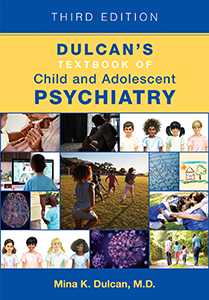Chapter 8.Autism Spectrum Disorders
Sections
Excerpt
The word autism, from the Greek autos, was coined by the Swiss psychiatrist Eugen Bleuler in his 1911 description of patients with schizophrenia (Asperger 1944/1991). However, its application as we understand it today was first written in parallel descriptions by the Viennese-American child psychiatrist Leo Kanner (1943) in “Autistic Disturbances of Affective Contact” and by the Viennese pediatrician Hans Asperger (1944/1991) in “‘Autistic Psychopathy’ in Childhood.” Kanner (1943) wrote, “There is from the start an extreme autistic aloneness that, whenever possible, disregards, ignores, shuts out anything that comes to the child from the outside” (p. 242). Despite being separate publications, the similarities between the observations of Kanner and Asperger are striking and may be connected by Georg Frankl, the chief diagnostician in Asperger’s clinic, who went to Johns Hopkins Hospital to work with Kanner in 1938 (Silberman 2015). Unlike Kanner’s astute and compassionate descriptions of children, Asperger’s writing has fallen out of favor because of his disparaging characterizations of his patients and his participation in Nazi programs, including euthanasia of children with disabilities (Czech 2018).
Access content
To read the fulltext, please use one of the options below to sign in or purchase access.- Personal login
- Institutional Login
- Sign in via OpenAthens
- Register for access
-
Please login/register if you wish to pair your device and check access availability.
Not a subscriber?
PsychiatryOnline subscription options offer access to the DSM-5 library, books, journals, CME, and patient resources. This all-in-one virtual library provides psychiatrists and mental health professionals with key resources for diagnosis, treatment, research, and professional development.
Need more help? PsychiatryOnline Customer Service may be reached by emailing [email protected] or by calling 800-368-5777 (in the U.S.) or 703-907-7322 (outside the U.S.).



